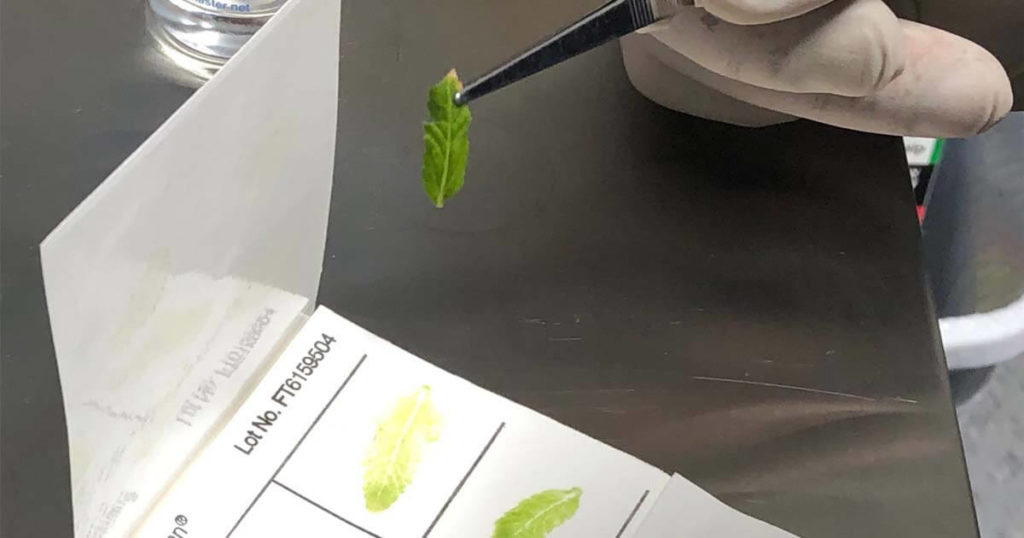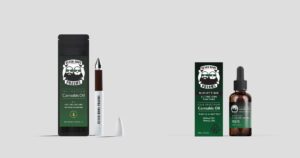 Cannabis farmers in California are facing unprecedented challenges these days. From overbearing regulation and taxation, to changes in climate that bring dangerous drought conditions and rising threats of wildfires, to unchecked competition from corporate cannabis operations that aren’t willing to and aren’t made to follow the unwritten rules that have traditionally kept a mostly-honest ethos at the root of the culture and marketplace, times are tough.
Cannabis farmers in California are facing unprecedented challenges these days. From overbearing regulation and taxation, to changes in climate that bring dangerous drought conditions and rising threats of wildfires, to unchecked competition from corporate cannabis operations that aren’t willing to and aren’t made to follow the unwritten rules that have traditionally kept a mostly-honest ethos at the root of the culture and marketplace, times are tough.
With the wholesale price of commercial cannabis flowers falling, and no financial or regulatory relief from the state in sight, small farmers in iconic regions like Northern California’s Emerald Triangle are being forced out of the so-called “legal market” that they spent decades sowing the seeds for.
It’s not right. Farming is hard but it has never been harder. So, when you can find a partner in the industry that makes things easier, farmers pay attention.
That is the case with LeafWorks, a Sonoma County-based, female-founded, plant genomics company that is applying mainstream ag science to age-old cannabis questions in new ways and providing time and money-saving solutions for farmers who need them the most.
In fact, the services that LeafWorks provide have proven to be beneficial not only to cannabis farmers, but to breeders, craftspeople, retailers, and consumers as well. This mutual benefit is at the root of the mission at LeafWorks and sets them apart from most competitors whose first focus is typically turning a profit.
Founded in 2016 by colleagues Eleanor Kuntz and Kerin Law who both hold PhDs from the University of Georgia, LeafWorks is now home to some of the brightest minds in cannabis genetics research and that collective expertise can be tapped into in a variety of ways.
LeafWorks Puts Planting Season to the Test
On a remote ranch in the mountains of Mendocino County, Swami Chaitanya rises before the sun on a foggy October morning.
Head Farmer and Co-founder at Swami Select, a licensed outdoor cannabis cultivation brand located in the heart of the Emerald Triangle, Swami himself is on a pre-dawn mission to begin harvesting hundreds of huge, healthy, flowering female cannabis plants while their terpene profiles are at their peak.
Harvest time is what fuels the California cannabis market, but the story of Swami’s crop starts several months earlier, back in the spring, when he hand-selects the seeds that will be planted for the year to come.
Since Swami does not grow from clones, he traditionally planted his seeds and then waited for them to sprout and eventually give an indication of their sex or gender.
Male pants, of course, produce pollen which if left unchecked leads to seed production in the female plants. Great for breeders, not for growers.
Not only can this waiting game take up space and time for a month or more, but it also requires the farmers to continue tending to all of the potted plants with soil and water and labor until the determination can be made and the males can be culled.
What a waste, especially for a regenerative farmer like Swami who strives for sustainability every step of the way.
So, last spring Swami and his partner Nikki Lastreto called on LeafWorks to come out to their ranch to educate them and their crew about a better way to accurately identify plant gender.
Within just a week of germination, farmers can take a small sample from one of the first two leaves to appear and “smudge” it cleanly onto the collection card provided by LeafWorks. Each sample has a garden stake associated with it so that test results can easily be matched up with specific plants – that’s the point!
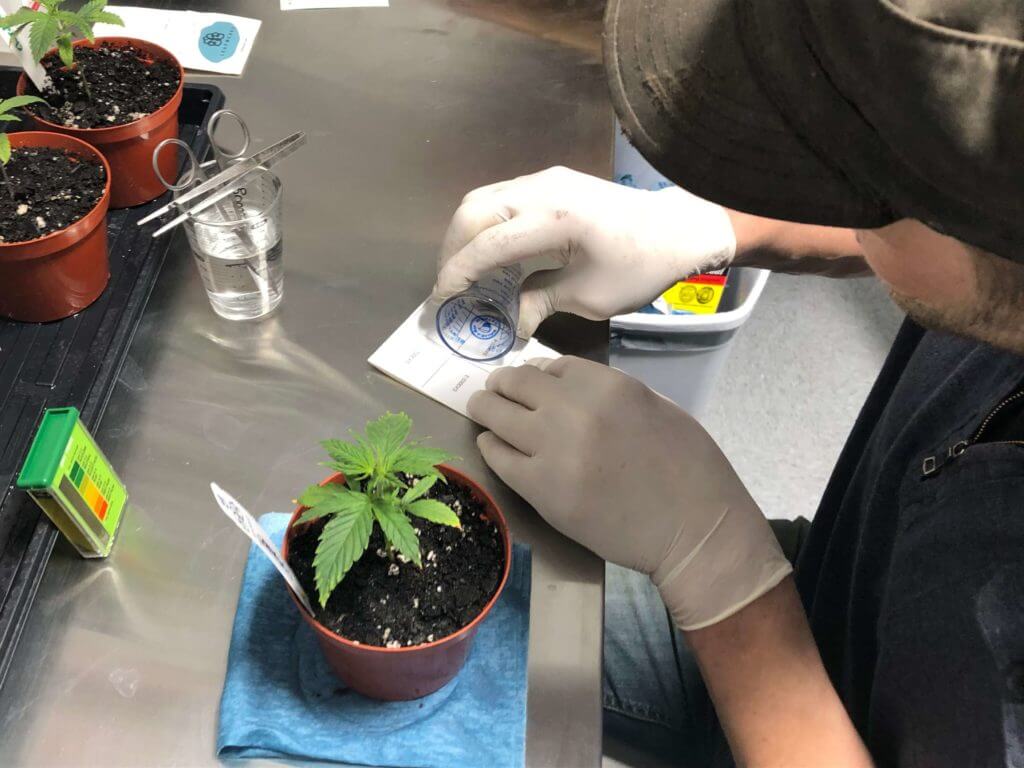
Since the card doesn’t contain actual plant matter, it can be mailed back to LeafWorks from anywhere in the world and within 3-7 days you’ll have gender results that have proven to be 99.9% accurate so far.
LeafWorks says this can cut operational costs by as much as 20% and it makes sense, especially at scale.
With well over 100 plants in their gardens, we asked Swami and Nikki what they thought of their experience with LeafWorks.
“Eleanor came out to our ranch to demonstrate how to do the testing, which was very helpful,” Nikki told us. “Our crew was super careful and meticulously clean when taking the samples, which is required to not allow any contamination and keep track of plants and their numbers.”
Swami said, “It was a joy to get our plants into their final soil much earlier than in previous years. It saved us lots of labor and fertilizer since we didn’t have to inspect the plants every day and water the males for an extra month and all that. We’re definitely doing it again this season!”
Priced at just $60 per kit, testing 4 samples per card, LeafWorks has made this science accessible and affordable enough for licensed small farmers and home growers as well.
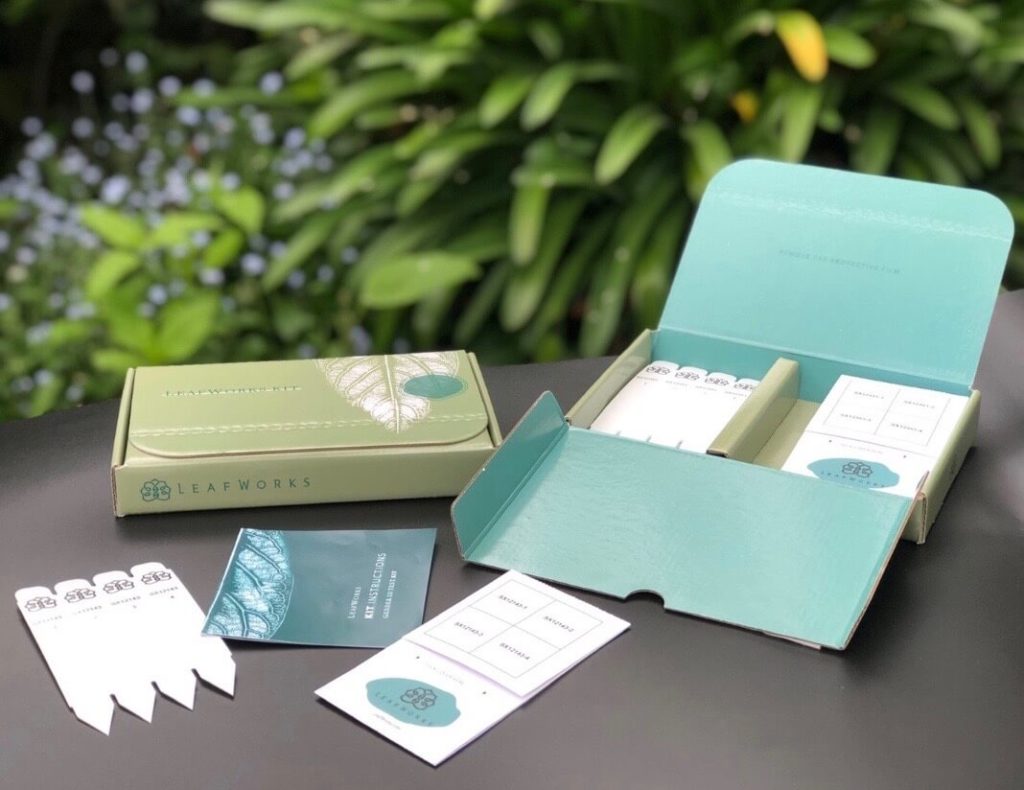
Cannabis (and Hemp) Pathogen Tests are also available for just $50 per pathogen and can potentially help save an entire crop with early identification of known nightmares like Hop Latent Viroid, Cannabis Cryptic Virus, Lettuce Chlorosis Virus, and fungi like Powdery Mildew, Botrytis, and Fusarium.
LeafWorks Cultivar Registration Breaks New Ground
In the botanical world, when someone discovers or breeds a new species, there is an established process for defining and recording the new and unique sample.
This is done not only to protect the integrity of the discovery or creation but also serves in many ways to protect consumers by offering a base point of reference that can forever be used to compare against when trying to determine product or ingredient legitimacy.
Until LeafWorks came along, no such service or registry existed for cannabis at large.
“When you buy a bottle of Merlot, you expect there to be Merlot in that bottle,” says Eleanor Kuntz, co-Founder and CEO of LeafWorks, adding, ”This isn’t the case in cannabis where there is a lot of bait and switch in names where if this one with this name isn’t selling, just change it. But that doesn’t serve your customer long term if they can’t come back and find the same product because the name is meaningless.”
Never before available in the cannabis industry, the LeafWorks Cannabis and Hemp Cultivar Registration service applies established botanical standards to create a time-stamped, in-depth genetic and phenotypic profile that breeders and/or growers can use to record unique cannabis cultivars to establish verifiable ownership or progeny.

LeafWorks not only catalogs and preserves your cultivar submission, but in a partnership with Canndor – the world’s first and only non-profit cannabis herbarium – they will create a dried sample plant voucher commonly known as Certified Reference Material.
Vouchers like these have served as the benchmark for botanical classification and identification for centuries.
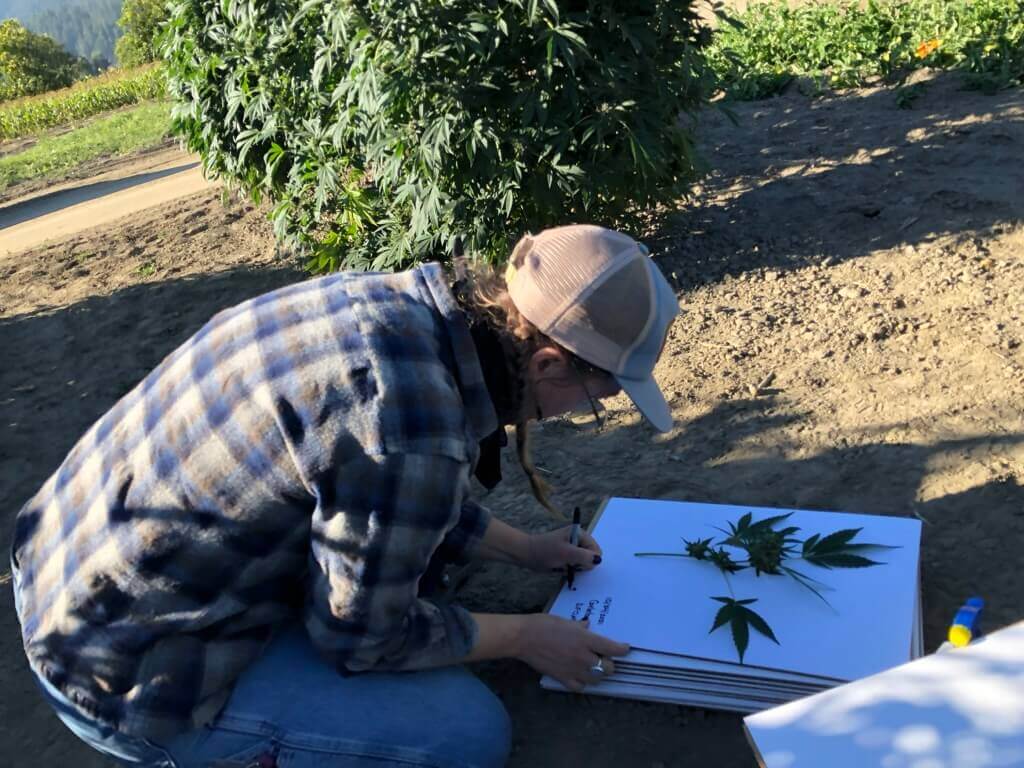
“In cannabis, there is this idea that you can ‘sequence’ something and you own it, which is completely ridiculous,” says Kuntz. “There’s a false sense that ‘I can own this thing’; but, if I’m the first one to sequence a Gala Apple and put it on the blockchain, does that really mean I ‘own’ it?”
The LeafWorks Cannabis and Hemp Cultivar Registration service can be used by breeders and cultivators to help them patent unique genetics, to support applications for appellation recognition, and to stake a claim with their particular strain in the commercial marketplace… and yes, the team at LeafWorks can even teach you how and why to create an NFT from your cultivar registration.
Third-Party Certifications Are Crucial for Consistency in Cannabis Quality
“We have to hold the plants constant so that we can ask other questions like, who grows it best? Who has the best quality? You can’t ask those questions if you can’t compare the same apple to apple,” says Kuntz.
This concept of fair comparison is at the root of the LeafWorks Supply Chain Certification service.
Under this program, cultivars are collected from participating breeders and growers and DNA-specific vouchers – or Certified Reference Material – are made from each sample.
Those vouchers can then be used as constant and trusted reference points anywhere or anytime downstream on the supply chain as future samples can be gathered and genetically tested against the Certified Reference Material to determine accurate cultivar identity.
Whether you are a licensed extractor who relies on a specific cultivar to craft your award-winning hash, or if you are a medical patient who relies on a specific cultivar for your own wellbeing, a LeafWorks Certification Seal on the package lets you know that you got the real deal.
When Small Farms Succeed, Cannabis Thrives
When legacy farmers decide to call it quits, sell their land, and leave the regions that they helped to legitimize, cannabis suffers greatly.
Not only are generations of knowledge potentially lost, but generations of genetics can be put in jeopardy as well. Compounding this risk is the rising threat of “wildfire season” which now seems to be an annual occurrence and year after year farms get wiped out, occasionally sending valuable seedstock up in smoke.
If craft cannabis loses the war to corporate cannabis, anyone who appreciates quality and variety will lose as well.
“Hoarding genetics is not the point. It’s really about documentation and realizing that the more we all strive to collectively document diversity, the more we all have access to it,” says Kuntz. “No big corporation can come and say ‘This belongs to us!’ if there is proof in the community that the community has been growing it.”
Advocacy for small farmers – as we see from groups like Origins Council, Supernova Women, the Emerald Cup, and others – is crucial now more than ever. But, so too is providing those farmers with the cutting edge tools and technology that can potentially boost them from simply surviving to truly thriving.



